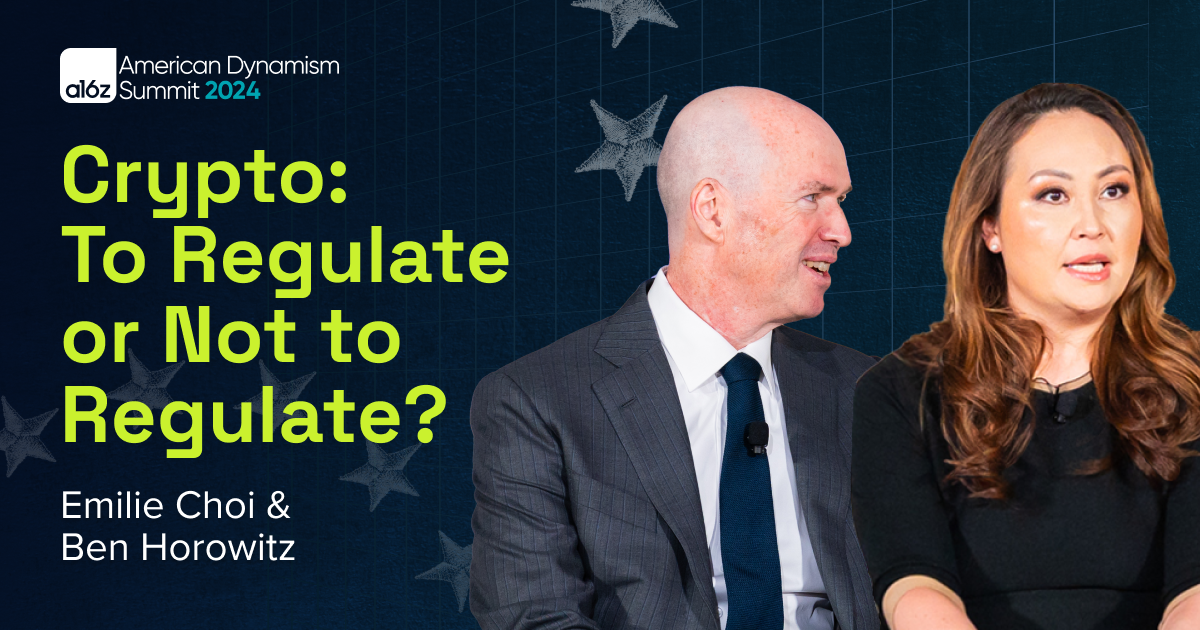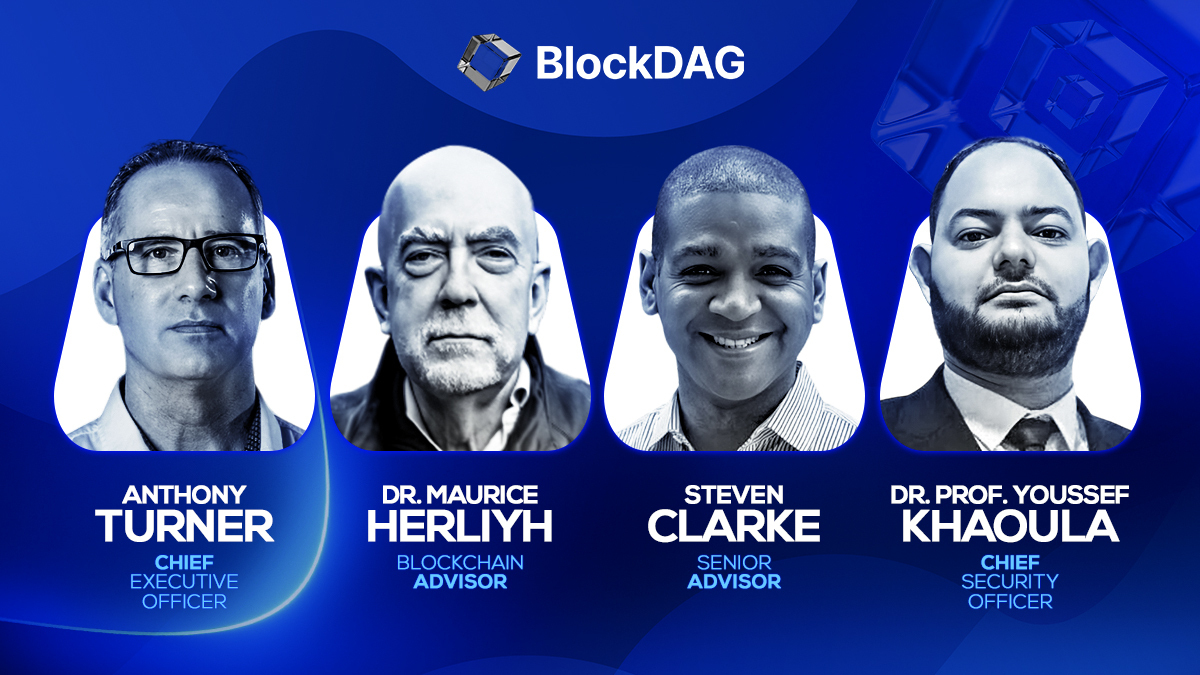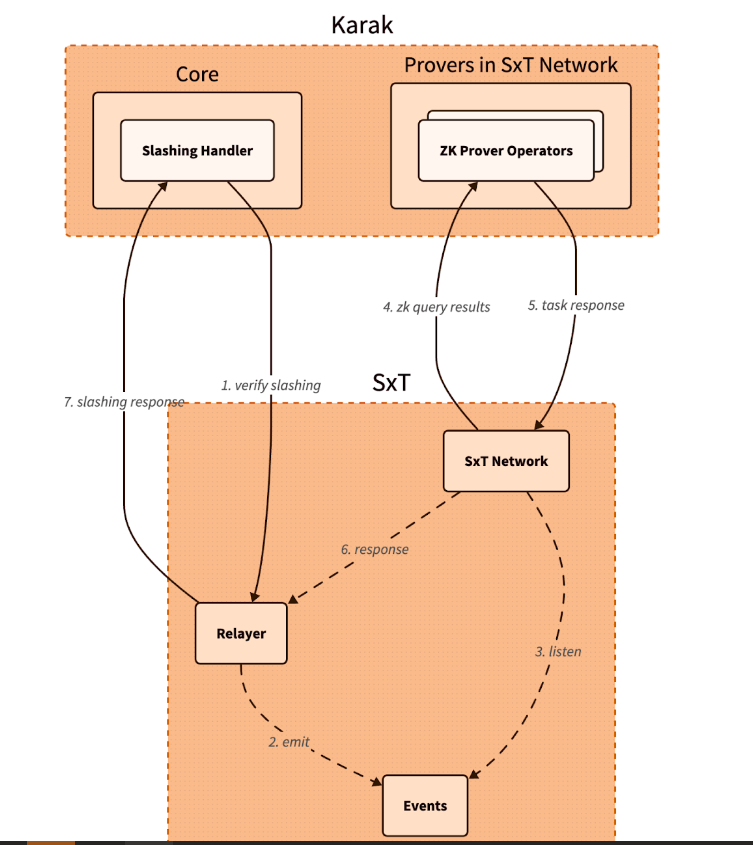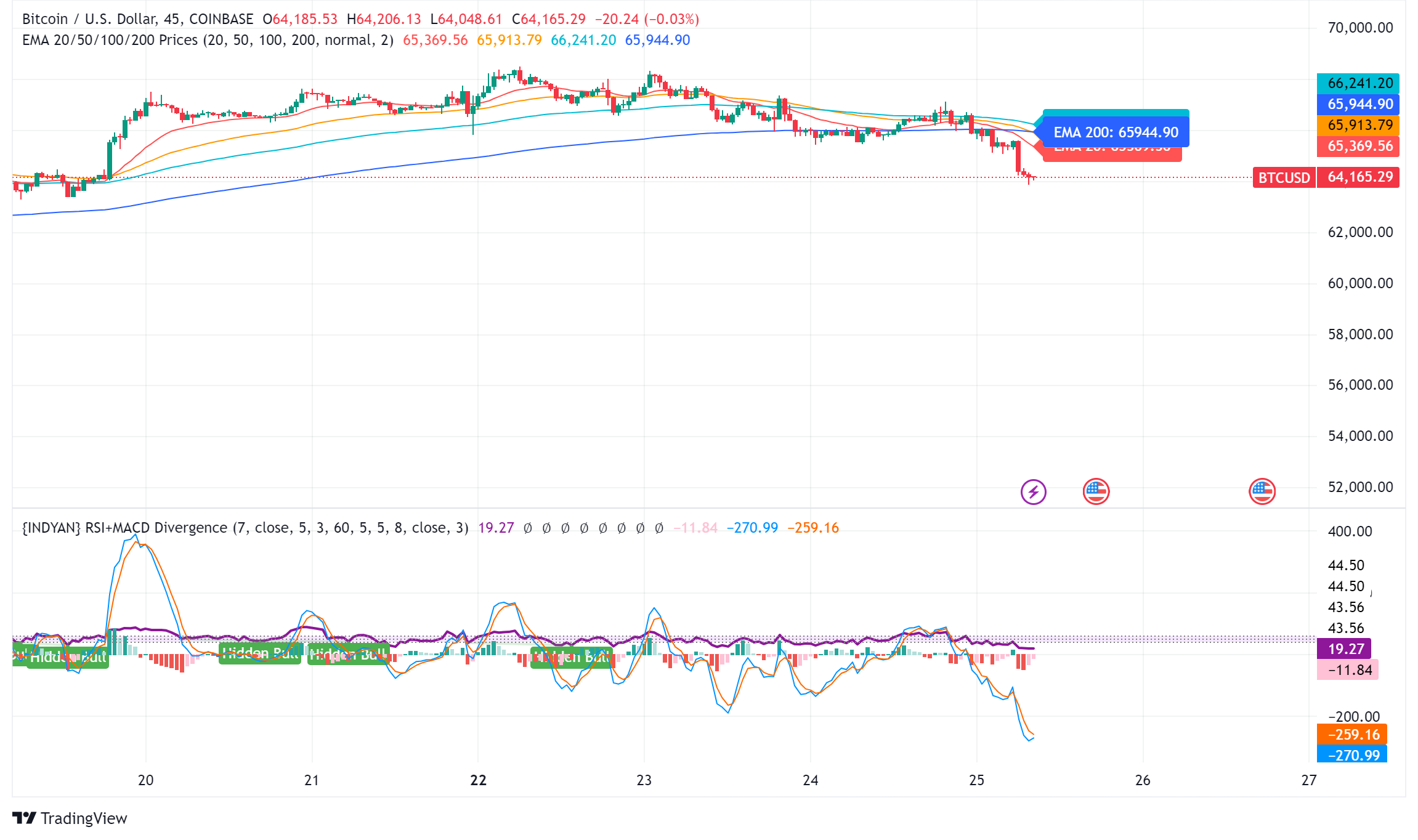Tech
Regulating Crypto in the Name of National Competitiveness with Emilie Choi

In this talk with a16z General Partner Ben Horowitz, from the a16z American Dynamism Summit, Coinbase President and Chief Operating Officer Emilie Choi discusses, among other things, crypto’s potential to power the next-generation internet and bolster individual freedoms — two major reasons why America should not only embrace crypto, but take charge in shaping its future.
Here is a transcript of their conversation:
Ben Horowitz: So, I’ve got Emilie, who is the very distinguished chief operating officer of Coinbase. So, we’re gonna talk crypto this morning. And so, those of us in crypto world have been very, very nervous that the U.S. may be losing its lead in what’s very likely the next generation of the internet. But there are some out there that say, “Oh, let crypto go offshore. We don’t want it.” How do you think about that?
Emilie Choi: I think it’s a travesty. I really think it’s a travesty. And I think the U.S. falling behind on crypto is not dissimilar from what we’ve seen with chips and what we’re having to do now with the chips bill. I think it’s like 5G, I think it’s a national security issue and threat to not have critical technology infrastructure built in the United States. And I think there’s technologies that we don’t always understand, whether it’s crypto, whether it’s AI. The instinct should not be to be like, push it off, push it offshore, or push it back in the bottle.
Ben: Yeah. When has that been a good idea?
Emilie: It’s never been a good idea. It’s never been a good idea. And the genie is outta the bottle. And we see all sorts of countries and regions starting to adopt sensible crypto frameworks. For example, 80% of the G20 now either has enacted or is in the process of enacting crypto legislation and regulation, and we just haven’t done anything here. And so, the net result is that 70% of crypto developers are now offshore, and thus the technology and data will continue to be built offshore. So, I think this has to be the year where we do something, we enable very sensible regulation here. You don’t often hear industries saying, like, “Please give me some lines. Please give me some level of regulation here so that we have some rules of the road.” You know, we have an organization called Stand With Crypto that has more than 275,000 advocates for crypto. It’s these entrepreneurs in all the different states. They come and they meet with their local representatives and senators and their friends in Singapore and other countries are saying, like, “Why would you build here? This is, like, such a dangerous thing to do here because here’s no rules of the road.” So, that’s what we have to do. We have to push stuff forward in the U.S.
Ben: So there were kind of no rules of the road on the internet to a large degree. How is crypto different? Like, what’s going on in the U.S. that makes that, like, a very bad idea?
Emilie: What makes out a very bad idea is that we have overzealous regulators such as the SEC, who are overstepping their boundaries. We’ve seen with the FTC that they’re overstepping on antitrust and thus not enabling any M&A to happen. With the SEC, they issued a wells notice to Coinbase about a year ago. And the thing is that we have an exchange, we have something that… there’s a parallel analogy in financial services. There’s ways to create certain lines around this, but update them for 2024 and beyond, that is the difference and I think it helps ultimately really protect customers and consumers, which should all be in our interests.
Ben: Right. So, you have a campaign speaking of upgrades called Upgrade the Financial System. What do you mean when you say upgrade the financial system and then, what is Coinbase’s vision for what that could mean for the United States?
Emilie: Most Americans are dissatisfied with the current financial system. They feel like it is not serving them in terms of fees. They feel like it is slow. It is clunky sending a wire. They feel like they don’t have access to certain services. And we see this all the time. The thing that is novel about crypto, it’s 24/7, it’s global in nature. It’s decentralized. You don’t have a middleman, arbitrating that you are worthy of something. It is done through the blockchain. And so, it brings all sorts of benefits. I think that we’re just in a time, Ben, obviously of distrust of institutions. And so, it’s a time to kind of update the financial system and bring it into the modern era. A lot of these systems like Swift are decades and decades old. So when I think about Coinbase, we have three different customer groups.
We have consumers, many, many consumers, that’s the core of our business who often come into Coinbase and buy Bitcoin. And then they become exposed to all different parts of the crypto economy. Maybe they want to stake some ETHE, maybe they want to buy an NFT. Whatever it is, they can do all sorts of novel things within that crypto ecosystem. We have an institutional business which enables trading custody. We have more than 25% of the world’s top hedge funds using it. We were named as the custodian of 8 of the 11 approved ETFs at this point and all sorts of prime brokerage services such as lending. And then our other business is the developer business, which serves developers and offers them cloud services and a development platform to be able to build on the crypto ecosystem.
Ben: Interesting. Yeah. And I read a stat where if you’re middle to low income and you’re banked, you spend more on overdraft fees than on vegetables, which is pretty crazy. It’s actually more expensive to bank if you’re poor than if you’re rich.
Emilie: Yes. I think that’s the funny thing about crypto… in many ways, it started as a libertarian movement about individual freedom and having control over your money. In many ways, it’s also on the other side, progressive in nature if you think about serving the underbanked and the underserved populations who typically haven’t had access to those types of traditional financial services. And so, it should be very equal opportunity, but for some reason, it’s not perceived that way.
Ben: Yeah. It’s interesting… it’s by far the most inclusive financial technology we’ve ever had.
Emilie: Exactly.
Ben: Which brings me to my next question, which is some say, some very specific people say that crypto’s only use is for illicit or illegal behavior and they’ll even go further to say it’s or imply that it’s kind of most of illegal financing as crypto. How do you respond to that?
Emilie: It’s a myth. So, if you look at any study that actually has data behind, less than 1%, usually less than 0.5% of crypto transactions are deemed illicit. Whereas it’s estimated that 3% to 5% of cash transactions are illicit activity. And the blockchain is actually a terrible mechanism for illicit activity because it’s traceable. You have the Keystone pipeline, the vast majority of those funds were recovered because that was traceable. And even Hamas, I think in 2022, 2023 announced that they were no longer gonna be accepting Bitcoin because it was too traceable. So, it is a myth.
Ben: No Bitcoin.
Emilie: No Bitcoin for us, but yeah, we’ll take cash. I think it’s one of those things where it’s a convenient narrative, it’s a convenient soundbite. The data doesn’t map to it at all. So it is a total myth. And we have spent so much time, we have bank-level, if not better than bank-level compliance, knowing our customers, making sure that we’re checking for illicit activity. It’s a little disappointing to hear certain politicians trying to use that as the wedge to kind of drive crypto out of the United States because it’s just false.
Ben: Yeah. Interesting. Why do you think they’re trying to drive crypto out of the United States? Are they just confused about that? Or do they know that they’re not actually being totally straightforward and they have a separate agenda?
Emilie: I think it could be one of two things. I mean, I’ve talked to a lot of people in this town and I think there is a little bit of a scariness factor with new technologies. It feels complex and overwhelming, and so it’s just one of those things where, okay, maybe it’s illicit, maybe it’s not. It just feels like we don’t need to protect it at this moment. And then I think there is a nefarious element. I think there’s an element that is trying to promote an agenda either to protect the traditional banking system or potentially to foster the adoption of a CBDC or something where every citizen’s transactions are tracked and monitored in a way that I think most people should not be comfortable with, given the value we place on privacy. And so, I think that if you’re really kind of playing this out, some of the people who are promoting that agenda probably wanna be able to trace all of your transactions.
Ben: So, create a closed-end financial system. Trace everybody, cut off the money if they want to, that kind of thing. Interesting. Scary but interesting. All right, now you’re scaring me.
Coinbase, you guys started out, and when we invested, I believe you were basically a Bitcoin exchange. So, why do we need other crypto that’s not Bitcoin? And this kind of gets into this whole thing about the name of it, cryptocurrency. Is a currency the right way to think about it? Or is that just like bad naming again by those of us in technology?
Emilie: Yeah, I think Bitcoin is the gateway asset and I think it is proven so resilient and enduring. We were talking about the market cap last night. I think it’s at like…the crypto market cap is well over a trillion.
Ben: Yeah, it’s right below a trillion.
Emilie: And Bitcoin is just under a trillion. It’s never been hacked. It’s decentralized and it’s an incredible asset. I think it’s actually a store of value. It’s outperformed virtually every asset during its time of existence. But there’s other assets. And I think the way to think about this is that the world is going to be tokenized. So, we have more than 200 assets on our platform. Whether that’s Ethe or Solana or others, and it could be an NFT, it could be that we digitize real estate. It could be whatever…the whole world is likely to be tokenized at some point things are gonna be digitized. And so, it can be all sorts of different types of assets. And one of the things that I’ve always was excited about with Coinbase was that we weren’t picking an asset. We were a platform for those assets.
Ben: Interesting. And so, you’ve become kind of maybe necessarily more politically active. What motivated you to do that? Because you weren’t so much early on and particularly this election cycle, you’re super active. What motivated that? Why are you doing that? What are you doing?
Emilie: I think we’ve talked about the fact that crypto has been woefully naive of the way the game is played. And I think that we were always kind of optimistic that politicians would see the light and understand how important this technology was and that it would just kind of figure itself out. That clearly didn’t work. And I think that post the FTX and finance issues offshore, it makes it even more apparent that we need clear, sensible regulation here. And so to that end, we’ve done a few things, some in partnership with you. We have a grassroots organization that I mentioned called Stand With Crypto, which has 275,000 advocates. We’re gonna grow that and kind of rally the crypto army. The idea there is that a lot of these politicians have really active crypto constituents in their districts, and they don’t even understand.
I mean, one of the things that blows people’s minds when I tell them there’s 52 million Americans that hold crypto, like, it’s not a fringe thing anymore. It’s not this thing that’s off to the side. It’s actually a mainstream activity. And so, if you get these really vocal folks to come into these offices and help them understand, I’m trying to build products here. I’m trying to found great technological innovation in Michigan, in Ohio, and I don’t know if I’m safe to build this thing here. I don’t know if I should go move to Singapore with my friends who are also developing because there’s more knowns there about the safety of me building products there.
And then just generally Coinbase, we’re meeting with politicians, we’re meeting with regulators, we’re meeting with people who understand things like national security. So, we just formed an advisory council we’re really proud of. We have people like Mark Esper, the former secretary of defense who understand very acutely the national security issues inherent in allowing technologies to go offshore. We’re doing everything we can to make this a political force, especially 2024 is gonna be a really important election year.
Ben: Yeah. Yes. No, super important for crypto and for all of us. There are many large issues at stake.
Emilie: Yes. Many things. A lot of stake in many ways.
Ben: So, there’s been a tremendous amount of news about the Bitcoin ETF and you mentioned that most of them are at Coinbase. And so, what does it mean for Coinbase?
Emilie: Yeah. How many people in the room hold Bitcoin or some form of crypto?… I think it’s really an important signal in many ways and I think it’s gonna be ushering a new era of crypto. So, if you think about this, there were many who were never able to access Bitcoin in their current portfolios. They didn’t have a vehicle for that. So, having the most traditional, stodgy, frankly, conservative institutions offering this and actually advising that some portion of your portfolio should be in crypto, I think just it switches the mental math for folks. I think it makes it more legitimate. I think people crave a new asset class, and this is it. So, I think it’s going to usher in a new era of people holding crypto, starting with Bitcoin. So, I think that’s incredibly important. So, I think that’s going to influence the crypto market cap in a major way.
For Coinbase, specifically, we are the custodian on 8 of the 11 named ETFs. And so, it’s very important that we are playing that role because we’ve invested so much in compliance, security, and offering the best products to our customers that, to be named that, frankly, with the overhang of the SEC, just validates it even more that we’re here to stay and that this is the company for these products. So, we’re proud.
Ben: So, that brings me to kind of an interesting phenomenon, which is Coinbase is, you know, and we’ve evaluated this many times, by far the most compliant, the most secure, no question, SEC-approved public company in the space, like, by far. But you’re surrounded by some colorful, some fraudulent actors. And yet you’ve been harassed or, kind of, you know, targeted, investigated more than most of them. You know, it’s very frustrating for us as investors to see, you know, people kind of running these Ponzi schemes, casinos, and whatnot, and there’s no law enforcement, and then you’re getting a Wells notice. So, what can policymakers do to make the rules of the road such that the good actors who try to be compliant and stay within the law and protect consumers are rewarded and the criminals go to jail? Like, what can we do?
Emilie: Yeah. It is extremely frustrating. Like, I think when you think about us somehow getting penalized for FTX being a fraud of, like, Bernie Madoff proportions…and that year, post-FTX, was the hardest of my career because it felt like just all of the attention and focus was on us. As Ben mentioned, we went public in 2021, under the auspices of the SEC, we have substantially the exact same business that we had in 2021 when we went public under them. And we comply. We comply with the Bank Secrecy Act. We are regulated as a money service transmitter. The NYDFS, I mean, we comply with everything. We go above and beyond. To me, the number one thing we can do is pass legislation. There’s a bill called Fit 21, which was sponsored by Patrick McHenry. It’s a very simple bill and elegant in that way in the sense that it just simply says that the SEC would have jurisdiction over digital securities and the CFTC would have jurisdiction over commodities for spot. That kind of, like, just basic clarity is what we need to be able to operate our business without feeling this overhang of the regulator kind of overstepping its boundaries.
Ben: And what are the key, kind of, points that kind of separate the good guys from the bad guys?
Emilie: I mean, to me, if you think about it and boil it down to something very simple, it’s about knowing your customer. And I remember back in the day with FTX, people would be like, “How can you have so many compliance people? This is insane. Like, how can they operate with so few? What’s wrong with you guys?” And I always felt like, “Oh, my gosh. Like, what are we doing wrong? What am I not understanding? Are compliance people not as efficient? And ultimately it just turned out that we were doing the hard work of actually knowing our customers and putting them through the whole system to make sure that they were valid and to make sure we were monitoring for illicit transactions. That ultimately is the most important thing in a financial system because you don’t want illicit activity, and you wanna have tabs on what the activity is, and you wanna know that you have quality customers and that nobody’s trying to also steal from your customers or hack into them. So, that to me is the most paramount thing.
Ben: All right, great. Well, on that note we have run our time, so please join me in thanking Emilie for enlightening us on what’s going on in the world of crypto.
Emilie: Thank you.
Tech
Harvard Alumni, Tech Moguls, and Best-Selling Authors Drive Nearly $600 Million in Pre-Order Sales

BlockDAG Network’s history is one of innovation, perseverance, and a vision to push the boundaries of blockchain technology. With Harvard alumni, tech moguls, and best-selling authors at the helm, BlockDAG is rewriting the rules of the cryptocurrency game.
CEO Antony Turner, inspired by the successes and shortcomings of Bitcoin and Ethereum, says, “BlockDAG leverages existing technology to push the boundaries of speed, security, and decentralization.” This powerhouse team has led a staggering 1,600% price increase in 20 pre-sale rounds, raising over $63.9 million. The secret? Unparalleled expertise and a bold vision for the future of blockchain.
Let’s dive into BlockDAG’s success story and find out what the future holds for this cryptocurrency.
The Origin: Why BlockDAG Was Created
In a recent interview, BlockDAG CEO Antony Turner perfectly summed up why the market needs BlockDAG’s ongoing revolution. He said:
“The creation of BlockDAG was inspired by Bitcoin and Ethereum, their successes and their shortcomings.
If you look at almost any new technology, it is very rare that the first movers remain at the forefront forever. Later incumbents have a huge advantage in entering a market where the need has been established and the technology is no longer cutting edge.
BlockDAG has done just that: our innovation is incorporating existing technology to provide a better solution, allowing us to push the boundaries of speed, security, and decentralization.”
The Present: How Far Has BlockDAG Come?
BlockDAG’s presale is setting new benchmarks in the cryptocurrency investment landscape. With a stunning 1600% price increase over 20 presale lots, it has already raised over $63.9 million in capital, having sold over 12.43 billion BDAG coins.
This impressive performance underscores the overwhelming confidence of investors in BlockDAG’s vision and leadership. The presale attracted over 20,000 individual investors, with the BlockDAG community growing exponentially by the hour.

These monumental milestones have been achieved thanks to the unparalleled skills, experience and expertise of BlockDAG’s management team:
Antony Turner – Chief Executive Officer
Antony Turner, CEO of BlockDAG, has over 20 years of experience in the Fintech, EdTech, Travel and Crypto industries. He has held senior roles at SPIRIT Blockchain Capital and co-founded Axona-Analytics and SwissOne. Antony excels in financial modeling, business management and scaling growth companies, with expertise in trading, software, IoT, blockchain and cryptocurrency.
Director of Communications
Youssef Khaoulaj, CSO of BlockDAG, is a Smart Contract Auditor, Metaverse Expert, and Red Team Hacker. He ensures system security and disaster preparedness, and advises senior management on security issues.

advisory Committee
Steven Clarke-Martin, a technologist and consultant, excels in enterprise technology, startups, and blockchain, with a focus on DAOs and smart contracts. Maurice Herlihy, a Harvard and MIT graduate, is an award-winning computer scientist at Brown University, with experience in distributed computing and consulting roles, most notably at Algorand.
The Future: Becoming the Cryptocurrency with the Highest Market Cap in the World
Given its impressive track record and a team of geniuses working tirelessly behind the scenes, BlockDAG is quickly approaching the $600 million pre-sale milestone. This crypto powerhouse will soon enter the top 30 cryptocurrencies by market cap.
Currently trading at $0.017 per coin, BlockDAG is expected to hit $1 million in the coming months, with the potential to hit $30 per coin by 2030. Early investors have already enjoyed a 1600% ROI by batch 21, fueling a huge amount of excitement around BlockDAG’s presale. The platform is seeing significant whale buying, and demand is so high that batch 21 is almost sold out. The upcoming batch is expected to drive prices even higher.

Invest in BlockDAG Pre-Sale Now:
Pre-sale: https://purchase.blockdag.network
Website: https://blockdag.network
Telegram: https://t.me/blockDAGnetwork
Discord: Italian: https://discord.gg/Q7BxghMVyu
No spam, no lies, just insights. You can unsubscribe at any time.
Tech
How Karak’s Latest Tech Integration Could Make Data Breaches Obsolete

- Space and Time uses zero-knowledge proofs to ensure secure and tamper-proof data processing for smart contracts and enterprises.
- The integration facilitates faster development and deployment of Distributed Secure Services (DSS) on the Karak platform.
Karak, a platform known for its strong security capabilities, is enhancing its Distributed Secure Services (DSS) by integrating Space and Time as a zero-knowledge (ZK) coprocessor. This move is intended to strengthen trustless operations across its network, especially in slashing and rewards mechanisms.
Space and Time is a verifiable processing layer that uses zero-knowledge proofs to ensure that computations on decentralized data warehouses are secure and untampered with. This system enables smart contracts, large language models (LLMs), and enterprises to process data without integrity concerns.
The integration with Karak will enable the platform to use Proof of SQL, a new ZK-proof approach developed by Space and Time, to confirm that SQL query results are accurate and have not been tampered with.
One of the key features of this integration is the enhancement of DSS on Karak. DSS are decentralized services that use re-staked assets to secure the various operations they provide, from simple utilities to complex marketplaces. The addition of Space and Time technology enables faster development and deployment of these services, especially by simplifying slashing logic, which is critical to maintaining security and trust in decentralized networks.

Additionally, Space and Time is developing its own DSS for blockchain data indexing. This service will allow community members to easily participate in the network by running indexing nodes. This is especially beneficial for applications that require high security and decentralization, such as decentralized data indexing.
The integration architecture follows a detailed and secure flow. When a Karak slashing contract needs to verify a SQL query, it calls the Space and Time relayer contract with the required SQL statement. This contract then emits an event with the query details, which is detected by operators in the Space and Time network.
These operators, responsible for indexing and monitoring DSS activities, validate the event and route the work to a verification operator who runs the query and generates the necessary ZK proof.
The result, along with a cryptographic commitment on the queried data, is sent to the relayer contract, which verifies and returns the data to the Karak cutter contract. This end-to-end process ensures that the data used in decision-making, such as determining penalties within the DSS, is accurate and reliable.
Karak’s mission is to provide universal security, but it also extends the capabilities of Space and Time to support multiple DSSs with their data indexing needs. As these technologies evolve, they are set to redefine the secure, decentralized computing landscape, making it more accessible and efficient for developers and enterprises alike. This integration represents a significant step towards a more secure and verifiable digital infrastructure in the blockchain space.
Website | X (Twitter) | Discord | Telegram
No spam, no lies, just insights. You can unsubscribe at any time.
Tech
Cryptocurrency Payments: Should CFOs Consider This Ferrari-Approved Trend?

Iconic Italian luxury carmaker Ferrari has announced the expansion of its cryptocurrency payment system to its European dealer network.
The move, which follows a successful launch in North America less than a year ago, raises a crucial question for CFOs across industries: Is it time to consider accepting cryptocurrency as a form of payment for your business?
Ferrari’s move isn’t an isolated one. It’s part of a broader trend of companies embracing digital assets. As of 2024, we’re seeing a growing number of companies, from tech giants to traditional retailers, accepting cryptocurrencies.
This change is determined by several factors:
- Growing mainstream adoption of cryptocurrencies
- Growing demand from tech-savvy and affluent consumers
- Potential for faster and cheaper international transactions
- Desire to project an innovative brand image
Ferrari’s approach is particularly noteworthy. They have partnered with BitPay, a leading cryptocurrency payment processor, to allow customers to purchase vehicles using Bitcoin, Ethereum, and USDC. This satisfies their tech-savvy and affluent customer base, many of whom have large digital asset holdings.
Navigating Opportunities and Challenges
Ferrari’s adoption of cryptocurrency payments illustrates several key opportunities for companies considering this move. First, it opens the door to new customer segments. By accepting cryptocurrency, Ferrari is targeting a younger, tech-savvy demographic—people who have embraced digital assets and see them as a legitimate form of value exchange. This strategy allows the company to connect with a new generation of affluent customers who may prefer to conduct high-value transactions in cryptocurrency.
Second, cryptocurrency adoption increases global reach. International payments, which can be complex and time-consuming with traditional methods, become significantly easier with cryptocurrency transactions. This can be especially beneficial for businesses that operate in multiple countries or deal with international customers, as it potentially reduces friction in cross-border transactions.
Third, accepting cryptocurrency positions a company as innovative and forward-thinking. In today’s fast-paced business environment, being seen as an early adopter of emerging technologies can significantly boost a brand’s image. Ferrari’s move sends a clear message that they are at the forefront of financial innovation, which can appeal to customers who value cutting-edge approaches.
Finally, there is the potential for cost savings. Traditional payment methods, especially for international transactions, often incur substantial fees. Cryptocurrency transactions, on the other hand, can offer lower transaction costs. For high-value purchases, such as luxury cars, these savings could be significant for both the business and the customer.
While the opportunities are enticing, accepting cryptocurrency payments also presents significant challenges that businesses must address. The most notable of these is volatility. Cryptocurrency values can fluctuate dramatically, sometimes within hours, posing potential risk to businesses that accept them as payment. Ferrari addressed this challenge by implementing a system that instantly converts cryptocurrency received into traditional fiat currencies, effectively mitigating the risk of value fluctuations.
Regulatory uncertainty is another major concern. The legal landscape surrounding cryptocurrencies is still evolving in many jurisdictions around the world. This lack of clear and consistent regulations can create compliance challenges for companies, especially those operating internationally. Companies must remain vigilant and adaptable as new laws and regulations emerge, which can be a resource-intensive process.
Implementation costs are also a significant obstacle. Integrating cryptocurrency payment systems often requires substantial investment in new technology infrastructure and extensive staff training. This can be especially challenging for small businesses or those with limited IT resources. The costs are not just financial; a significant investment of time is also required to ensure smooth implementation and operation.
Finally, security concerns loom large in the world of cryptocurrency transactions. While blockchain technology offers some security benefits, cryptocurrency transactions still require robust cybersecurity measures to protect against fraud, hacks, and other malicious activity. Businesses must invest in robust security protocols and stay up-to-date on the latest threats and protections, adding another layer of complexity and potential costs to accepting cryptocurrency payments.
Strategic Considerations for CFOs
If you’re thinking of following in Ferrari’s footsteps, here are the key factors to consider:
- Risk Assessment: Carefully evaluate potential risks to your business, including financial, regulatory, and reputational risks.
- Market Analysis: Evaluate whether your customer base is significantly interested in using cryptocurrencies for payments.
- Technology Infrastructure: Determine the costs and complexities of implementing a cryptographic payment system that integrates with existing financial processes.
- Regulatory Compliance: Ensure that cryptocurrency acceptance is in line with local regulations in all markets you operate in. Ferrari’s gradual rollout demonstrates the importance of this consideration.
- Financial Impact: Analyze how accepting cryptocurrency could impact your cash flow, accounting practices, and financial reporting.
- Partnership Evaluation: Consider partnering with established crypto payment processors to reduce risk and simplify implementation.
- Employee Training: Plan comprehensive training to ensure your team is equipped to handle cryptocurrency transactions and answer customer questions.
While Ferrari’s adoption of cryptocurrency payments is exciting, it’s important to consider this trend carefully.
A CFO’s decision to adopt cryptocurrency as a means of payment should be based on a thorough analysis of your company’s specific needs, risk tolerance, and strategic goals. Cryptocurrency payments may not be right for every business, but for some, they could provide a competitive advantage in an increasingly digital marketplace.
Remember that the landscape is rapidly evolving. Stay informed about regulatory changes, technological advancements, and changing consumer preferences. Whether you decide to accelerate your crypto engines now or wait in the pit, keeping this payment option on your radar is critical to navigating the future of business transactions.
Was this article helpful?
Yes No
Sign up to receive your daily business insights
Tech
Bitcoin Tumbles as Crypto Market Selloff Mirrors Tech Stocks’ Plunge

The world’s largest cryptocurrency, Bitcoin (BTC), suffered a significant price decline on Wednesday, falling below $65,000. The decline coincides with a broader market sell-off that has hit technology stocks hard.
Cryptocurrency Liquidations Hit Hard
CoinGlass data reveals a surge in long liquidations in the cryptocurrency market over the past 24 hours. These liquidations, totaling $220.7 million, represent forced selling of positions that had bet on price increases. Bitcoin itself accounted for $14.8 million in long liquidations.
Ethereum leads the decline
Ethereal (ETH), the second-largest cryptocurrency, has seen a steeper decline than Bitcoin, falling nearly 8% to trade around $3,177. This decline mirrors Bitcoin’s price action, suggesting a broader market correction.
Cryptocurrency market crash mirrors tech sector crash
The cryptocurrency market decline appears to be linked to the significant losses seen in the U.S. stock market on Wednesday. Stock market listing The index, heavily weighted toward technology stocks, posted its sharpest decline since October 2022, falling 3.65%.
Analysts cite multiple factors
Several factors may have contributed to the cryptocurrency market crash:
- Tech earnings are underwhelming: Earnings reports from tech giants like Alphabet are disappointing (Google(the parent company of), on Tuesday, triggered a sell-off in technology stocks with higher-than-expected capital expenditures that could have repercussions on the cryptocurrency market.
- Changing Political Landscape: The potential impact of the upcoming US elections and changes in Washington’s policy stance towards cryptocurrencies could influence investor sentiment.
- Ethereal ETF Hopes on the line: While bullish sentiment around a potential U.S. Ethereum ETF initially boosted the market, delays or rejections could dampen enthusiasm.
Analysts’ opinions differ
Despite the short-term losses, some analysts remain optimistic about Bitcoin’s long-term prospects. Singapore-based cryptocurrency trading firm QCP Capital believes Bitcoin could follow a similar trajectory to its post-ETF launch all-time high, with Ethereum potentially converging with its previous highs on sustained institutional interest.
Rich Dad Poor Dad Author’s Prediction
Robert Kiyosaki, author of the best-selling Rich Dad Poor Dad, predicts a potential surge in the price of Bitcoin if Donald Trump is re-elected as US president. He predicts a surge to $105,000 per coin by August 2025, fueled by a weaker dollar that is set to boost US exports.
BTC/USD Technical Outlook
Bitcoin price is currently trading below key support levels, including the $65,500 level and the 100 hourly moving average. A break below the $64,000 level could lead to further declines towards the $63,200 support zone. However, a recovery above the $65,500 level could trigger another increase in the coming sessions.
-

 News11 months ago
News11 months agoVolta Finance Limited – Director/PDMR Shareholding
-

 News11 months ago
News11 months agoModiv Industrial to release Q2 2024 financial results on August 6
-

 News11 months ago
News11 months agoApple to report third-quarter earnings as Wall Street eyes China sales
-

 News11 months ago
News11 months agoNumber of Americans filing for unemployment benefits hits highest level in a year
-

 News1 year ago
News1 year agoInventiva reports 2024 First Quarter Financial Information¹ and provides a corporate update
-

 News1 year ago
News1 year agoLeeds hospitals trust says finances are “critical” amid £110m deficit
-

 DeFi1 year ago
DeFi1 year ago🏴☠️ Pump.Fun operated by Insider Exploit
-

 Markets1 year ago
Markets1 year agoWhale Investments in Bitcoin Hit $100 Billion in 2024, Fueling Insane Investor Optimism ⋆ ZyCrypto
-

 Tech1 year ago
Tech1 year agoBitcoin’s Correlation With Tech Stocks Is At Its Highest Since August 2023: Bloomberg ⋆ ZyCrypto
-

 Tech1 year ago
Tech1 year agoEverything you need to know
-

 News11 months ago
News11 months agoStocks wobble as Fed delivers and Meta bounces
-

 Markets1 year ago
Markets1 year agoCrazy $3 Trillion XRP Market Cap Course Charted as Ripple CEO Calls XRP ETF “Inevitable” ⋆ ZyCrypto





